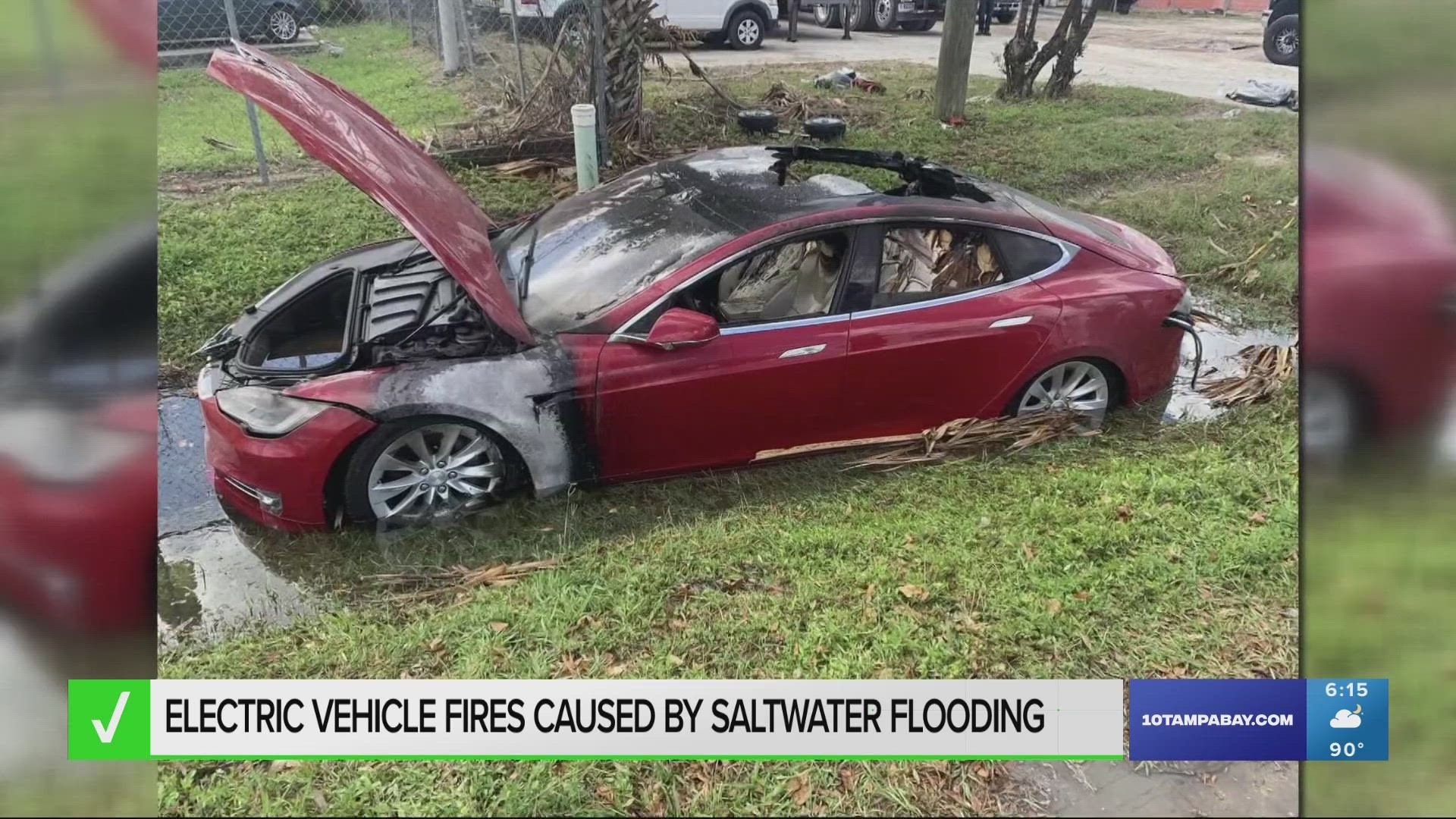PINELLAS PARK, Fla. — A day after being partially flooded by saltwater from storm surge caused by Hurricane Idalia, a Tesla being hauled away on a flatbed ignited in flames.
Fire crews who responded to the parking lot on 66th Street N and Park Boulevard said it took nearly an hour to extinguish the fire – something they said is typical with electric vehicles.
In the days leading up to Hurricane Idalia making landfall in Florida, several state and local officials issued warnings about electric vehicles and storm surge, including Florida's CFO Jimmy Patronis.
"If you’re evacuating and leaving an EV, or other lithium-ion powered devices ... in your garage, you’re creating a real fire threat for your home, your communities, and first responders," Patronis said in a statement. "Move it to higher ground before it’s too late.”
THE QUESTION
Are electric vehicles prone to catching fire if submerged in saltwater?
THE SOURCES
- U.S. Fire Administration
- National Highway Traffic Safety Administration
- FEMA
- U.S. Department of Energy
- EV FireSafe
THE ANSWER
Yes, lithium-ion batteries in electric vehicles can be at risk of catching fire if submerged in saltwater.
WHAT WE FOUND
As electric vehicles, or EVs, grow in popularity there’s growing concern in the firefighting community about how to deal with EV fires.
According to the NHTSA, residual salt within the battery or battery components can form conductive “bridges” that can lead to short circuits and self-heating of the battery, resulting in fires.
But when a damaged lithium-ion battery can ignite varies widely.
In 2022, following Hurricane Ian, there were at least a dozen reports of EVs that had been submerged or partially submerged in saltwater igniting weeks later.
Currently, Florida has the second-most registered EVs in the country, only behind California, according to the latest available data from the U.S. Department of Energy.
But as sales increase, first responders face increasing risks fighting related fires due to their higher intensities.
Florida Gov. Ron DeSantis warned about fire risks posed by EVs in the days leading up to Hurricane Idalia making landfall in the state.
“These electric vehicles when they get saltwater intrusion can catch on fire and those are very difficult fires to put out,” DeSantis said during a storm update.
Electric vehicle battery fires can get as hot as 4,900 degrees Fahrenheit, according to research from EV FireSafe. In traditional vehicles, fire burns around 1,500 degrees Fahrenheit, according to FEMA.

